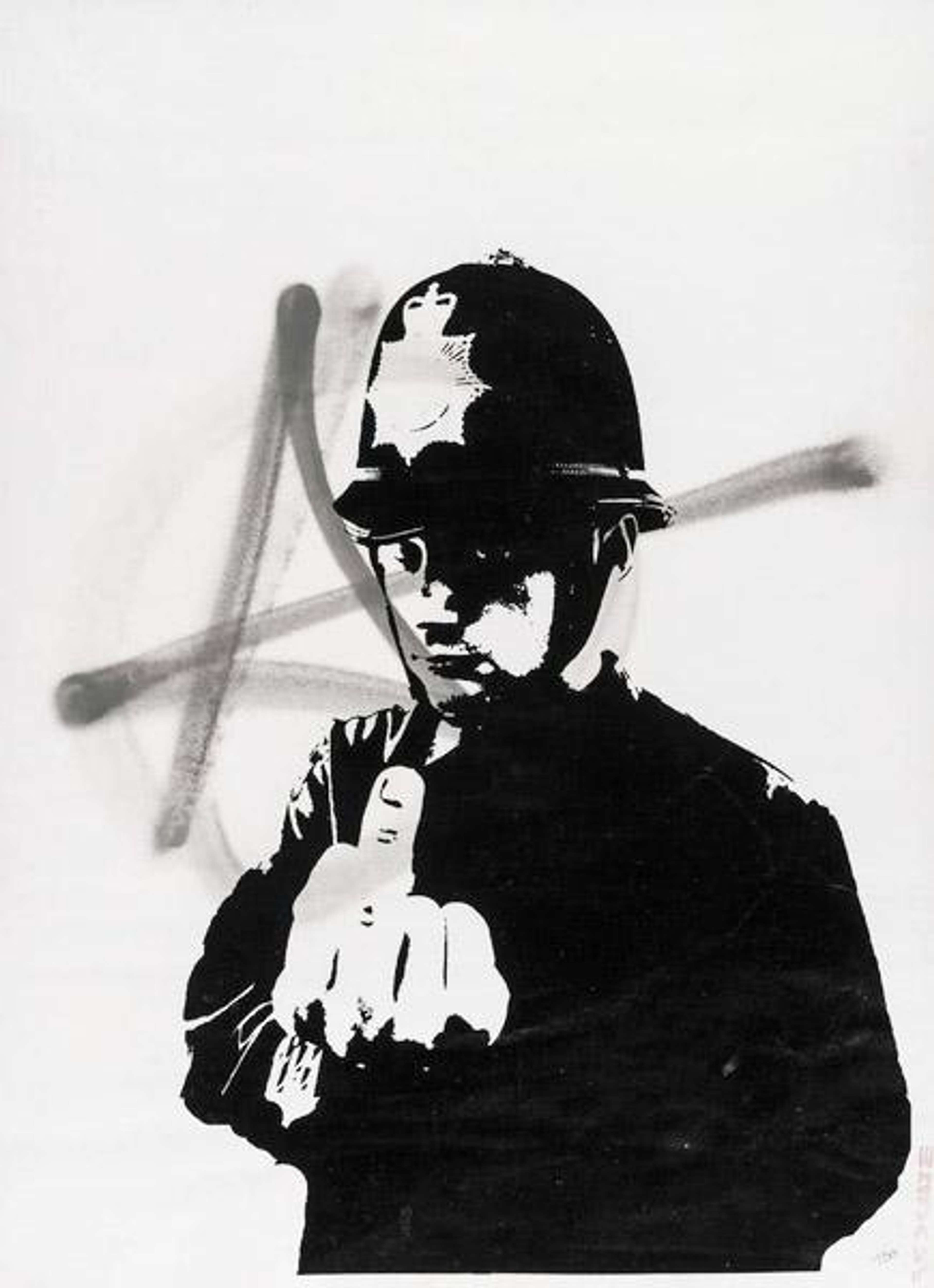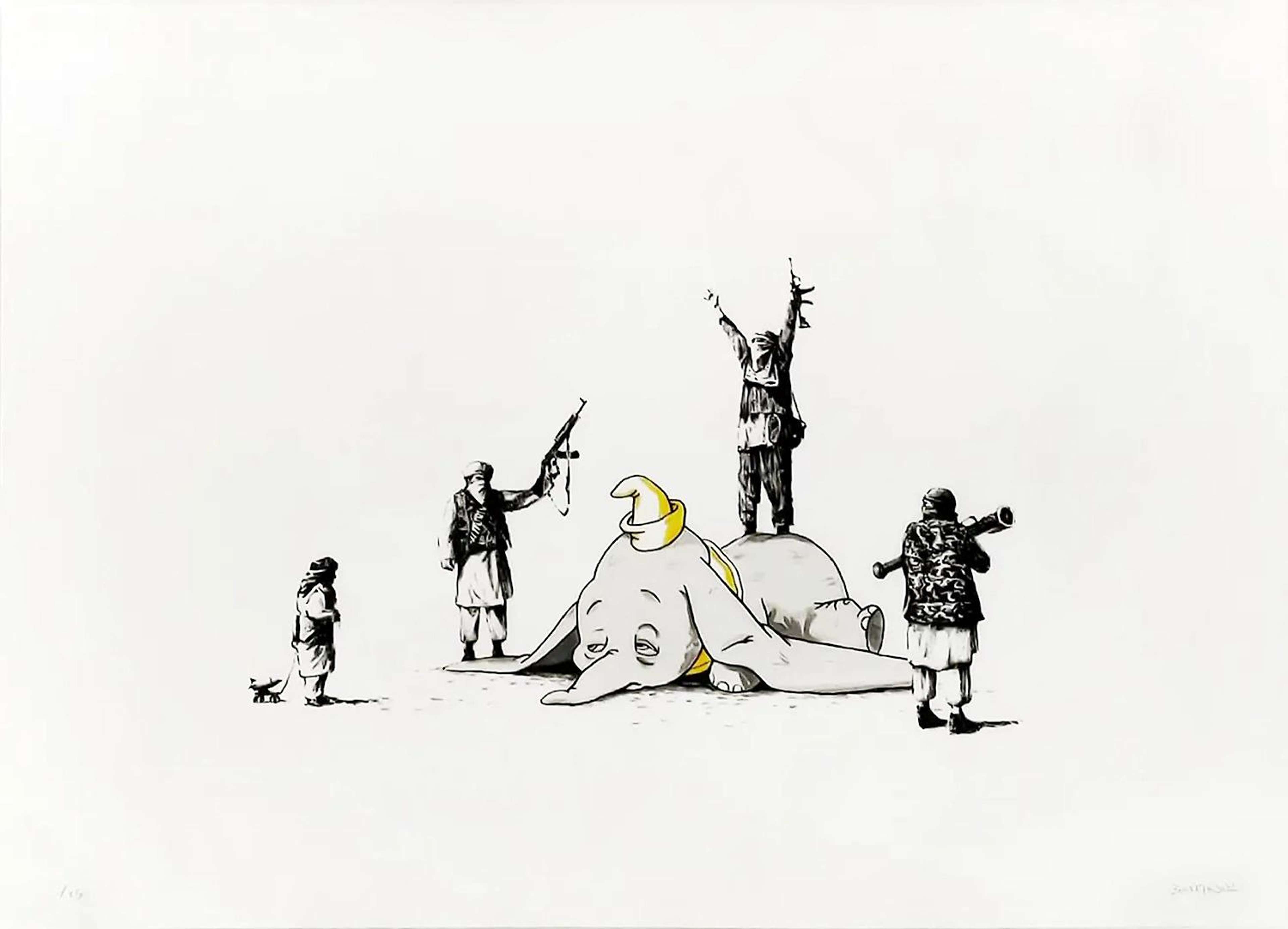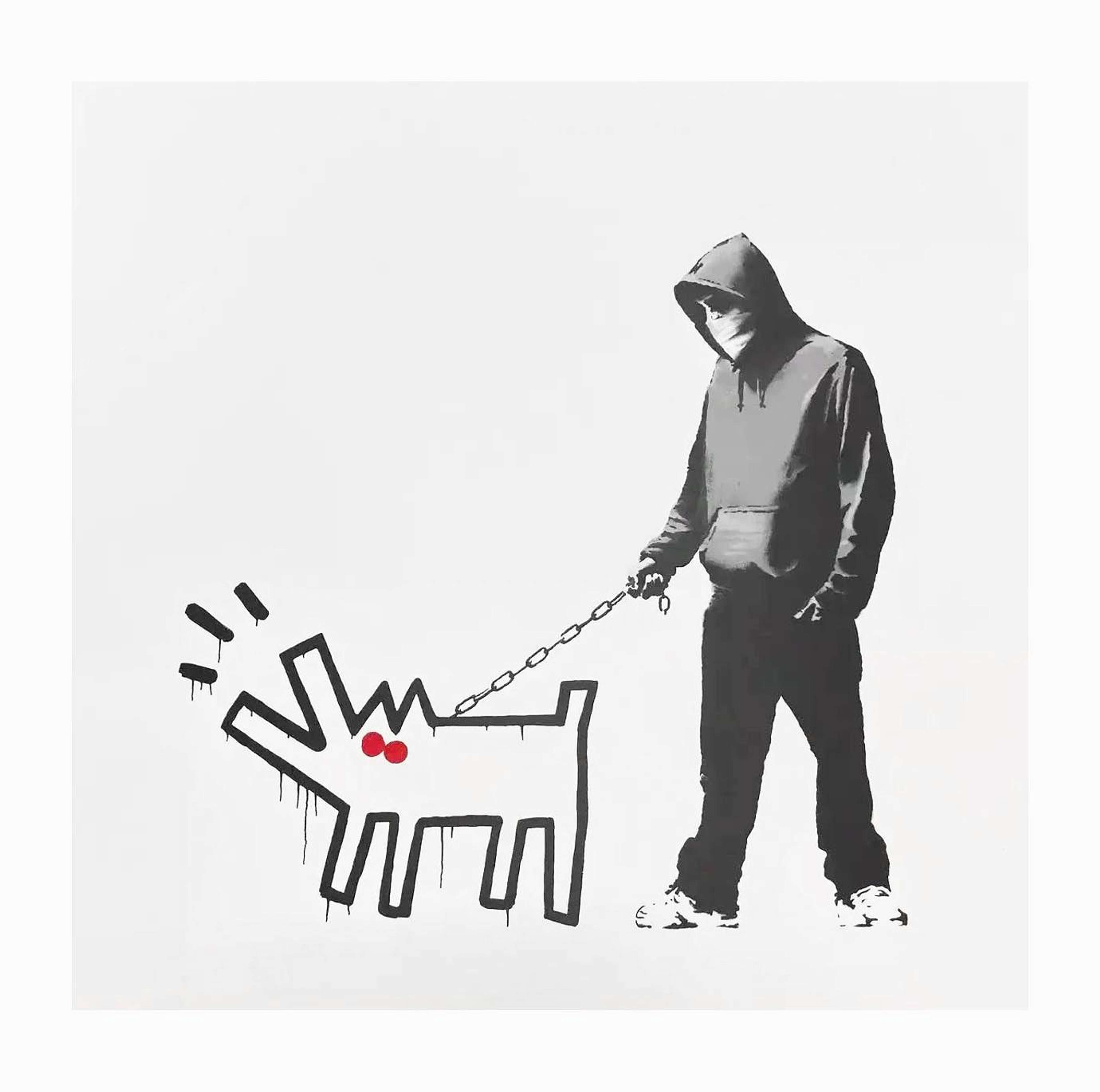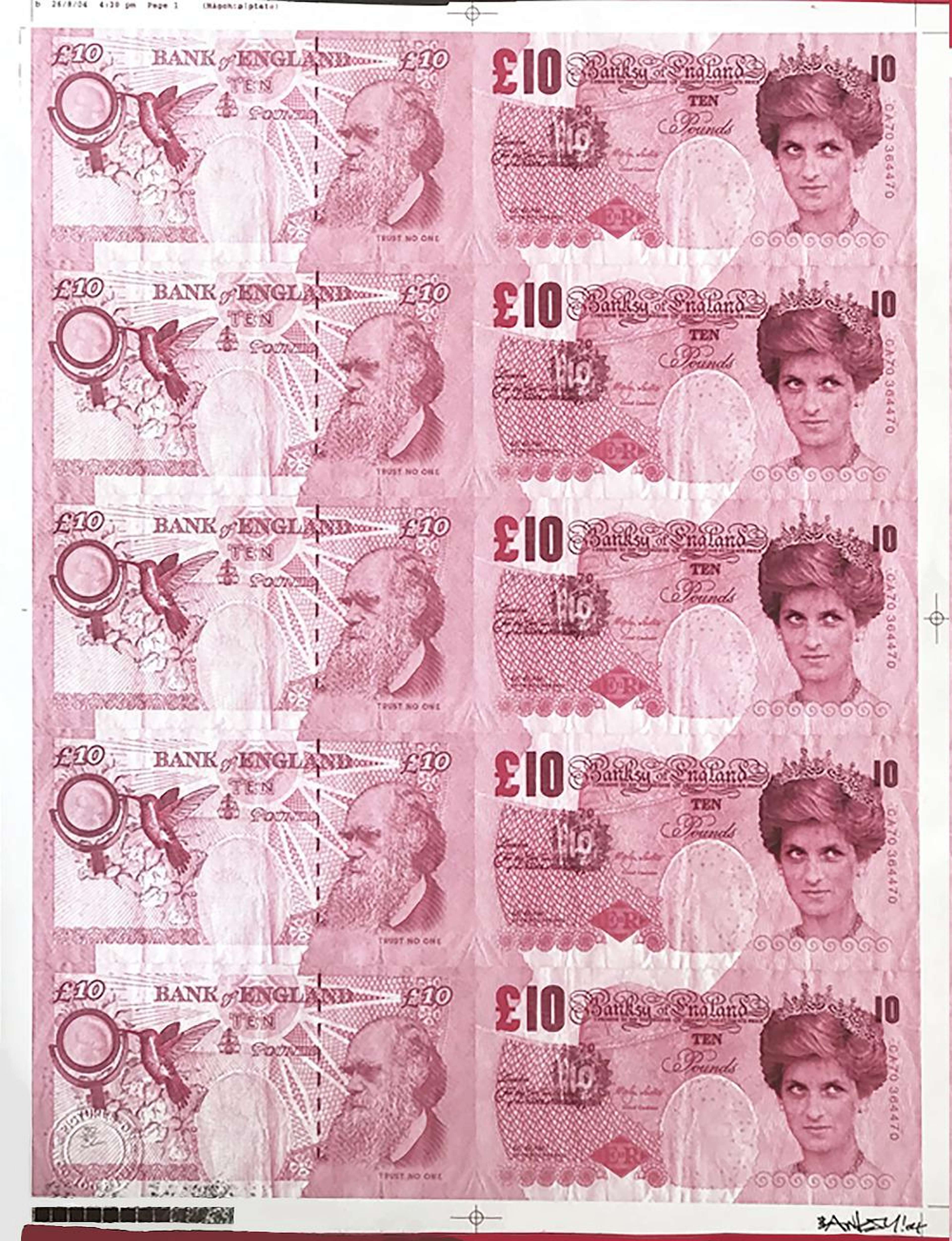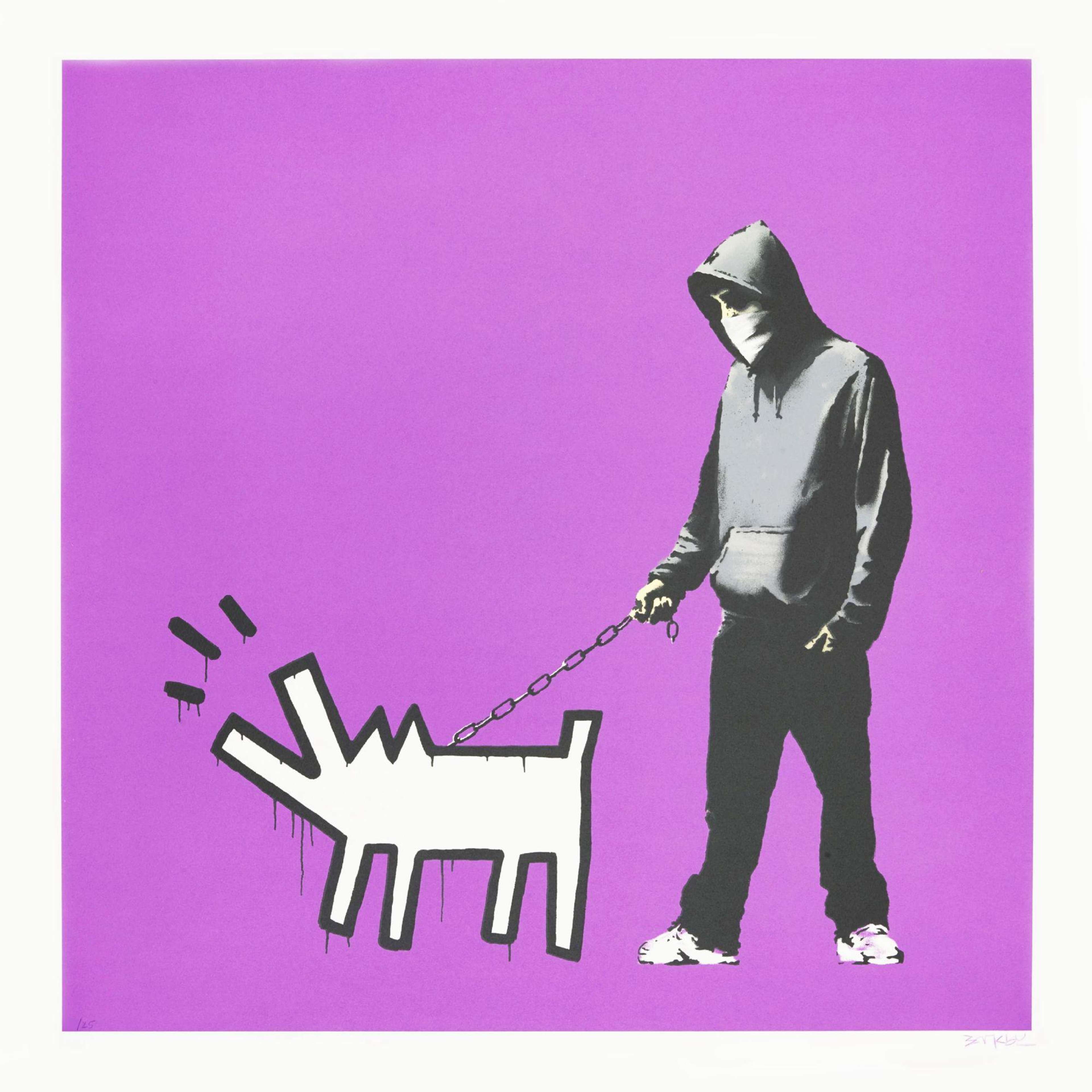The Banksy Market: Past, Present & Future

 Love Rat © Banksy 2004
Love Rat © Banksy 2004
Banksy
270 works
In our live panel discussion - The Banksy Market: Past, Present & Future - our specialists explored the anonymous artist’s market, from its early days to what the future might hold. Hosted by Charlotte Stewart, the panel included Joe Syer, Co-Founder of MyArtBroker and a Banksy market expert; Florence Whittaker, our Banksy Sales Specialist; and Helena Poole, our Banksy Consignments Specialist. The discussion focused on understanding the development of Banksy's market, examining the elements that affect the value of his works, how his public stunts have influenced market values, and the critical importance of authentication in maintaining the market's integrity.
The Banksy market, a tumultuous yet fascinating arena, has captivated art collectors and investors worldwide. With a panel comprising industry veterans, the discussion provided an in-depth exploration of Banksy's market trajectory, shedding light on the artist's early days selling prints from a van to the establishment of a formidable secondary market. The conversation aimed to address key questions about valuation, provenance, and the future of Banksy's art in the ever-evolving landscape of contemporary art investment. This event not only sought to educate attendees on making informed decisions in the Banksy market but also to celebrate the artist's indelible impact on the art world and beyond, highlighting the challenges and opportunities that lie within the trade of his works.
Watch the full panel discussion here:
The Evolution of Banksy’s Career & Market
The evolution of Banksy's market, as detailed by Joe, provides a captivating narrative that traces the ascent of Banksy from the streets to the pinnacle of the art world. Joe, with over 14 years of experience trading Banksy's works, offered an authoritative account of the artist's early days. He vividly described how Banksy's initial foray into selling his art—prints sold from the back of a van in 2002—was not just about commerce but a mission to democratise art, making it accessible and affordable to the masses. This period marked the beginning of Banksy's journey from an underground artist to a global phenomenon.
Joe's recounting of Banksy's career milestones illuminated the path of the artist's market maturation. He spoke of the first edition releases, such as the iconic Rude Copper in 2002, and how Banksy's relationship with the print house Pictures On Walls significantly expanded his print releases, allowing his art to reach broader audiences. Despite the initial slow sale of pieces, these editions laid the groundwork for Banksy's burgeoning market. The narrative further encompassed pivotal moments, such as the Better Out Than In residency in New York and the Dismaland exhibition, which not only captivated public attention but also invigorated Banksy's market value. The shredding of Girl With Balloon at a Sotheby's auction in 2018 was underscored as a defining moment that cemented Banksy's legendary status in art history, illustrating his knack for blending artistry with spectacle.
Addressing the challenges, Joe delved into the issues of forgery that plagued the Banksy market. The establishment of Pest Control was highlighted as a critical response to this dilemma, serving as the authentication body that has since played a pivotal role in safeguarding Banksy's oeuvre. This move was pivotal in maintaining market integrity and ensuring buyer confidence, countering the counterfeit market with a robust verification process. Through these insights, Joe not only charted the evolution of Banksy's market but also shed light on the artist's enduring impact on the art world, demonstrating a market that has adapted and thrived amidst challenges and milestones.
Determining Value in the Banksy Market
Florence, with her deep expertise in the Banksy sales market, provided a nuanced understanding of the multifaceted aspects that influence the valuation of Banksy's works. She began by dissecting the core elements that play a pivotal role in determining a piece's value, emphasising that the valuation of Banksy art is not merely a straightforward process but involves a careful consideration of several factors. According to Florence, edition size stands as a critical determinant; the number of prints released impacts scarcity and, consequently, the artwork's market value. She highlighted the inherent value disparity between signed and unsigned prints, noting that signed editions typically command higher prices due to their added layer of authenticity and direct connection to the artist.
Florence also touched on the importance of rarity and condition in the valuation process. She pointed out that certain works by Banksy, due to their limited availability or unique historical significance, can fetch premium prices. The condition of the artwork, from its physical state to any restoration efforts, significantly affects its market value, with well-preserved pieces being more sought after. Provenance, or the artwork's history of ownership, was underscored as another crucial factor, adding layers of authenticity and trust that can enhance an artwork's appeal to collectors.
Exploring market dynamics, Florence shed light on current buying trends within the Banksy market. She noted a pronounced preference for iconic pieces like Girl with Balloon, which continue to captivate collectors for their symbolic resonance and visual impact. Whittaker also observed a geographical expansion of interest, with collectors from Asia and the United States increasingly entering the Banksy market. This diversification of the buyer base signifies the global appeal of Banksy's work and suggests a broadening market that transcends traditional boundaries, driven by the artist's universal themes and striking imagery. Through her insights, Florence painted a picture of a vibrant and evolving Banksy market, where valuation hinges on a complex interplay of factors and global trends.
Pest Control, Authentication & Provenance
Helena offered an in-depth examination of the fundamental aspects of authentication and provenance, pivotal to the integrity and valuation of Banksy's market. She began by shedding light on Pest Control, the only official body authorised to authenticate Banksy's works, emphasising its indispensable role in the art market. Helena explained that Pest Control was established in response to the growing issue of forgeries within the Banksy market. This move was crucial for establishing a trusted mechanism to verify the authenticity of Banksy's works, thereby ensuring buyer confidence and safeguarding the artist's legacy. She detailed the process of authentication, which involves a meticulous examination to verify a work's legitimacy, ultimately granting a certificate of authenticity. This rigorous process, as Helena highlighted, is essential for maintaining the market's integrity and trust, ensuring that collectors are investing in genuine pieces of art.
Expanding on the importance of provenance, Helena illuminated how the history of an artwork's ownership and its journey significantly impacts its value. She pointed out that works originating from esteemed collections or having a notable history could command higher prices, as provenance adds layers of desirability and authenticity to the piece. Helena stressed the critical nature of documentation, noting that thorough provenance could greatly enhance an artwork's appeal and market value. She underscored the intricate relationship between provenance and authenticity, explaining that well-documented histories of artworks contribute to a more transparent and secure market, where collectors can confidently invest in pieces with verified backgrounds.
There is a synergistic relationship between authentication by Pest Control and the provenance of Banksy's works. She convincingly argued that these elements are not merely administrative but are foundational to the very essence of collecting Banksy's art, ensuring that each piece's value is recognised and preserved within the market's framework. This insight into authentication and provenance provided a clearer understanding of their paramount importance in sustaining the vibrancy and reliability of the Banksy market.
The Banksy market's past, present, and future are intricately woven with the artist's unconventional journey, market dynamics, and the steadfast commitment to authenticity. This panel event underscored the importance of due diligence, the intricacies of valuation, and the enduring allure of Banksy's art. As the market continues to evolve, the insights shared by the esteemed panellists serve as a guiding light for collectors and investors navigating the Banksy market. The discussion not only celebrated Banksy's revolutionary impact on the art world but also highlighted the collective efforts of specialists and authenticators in fostering a transparent and robust market. Looking ahead, the Banksy market appears poised for continued growth and transformation, with its roots firmly planted in the artist's maverick legacy and a community dedicated to preserving its integrity and accessibility.

